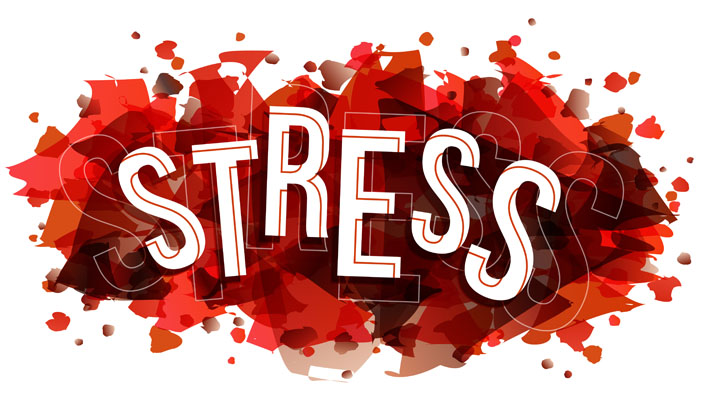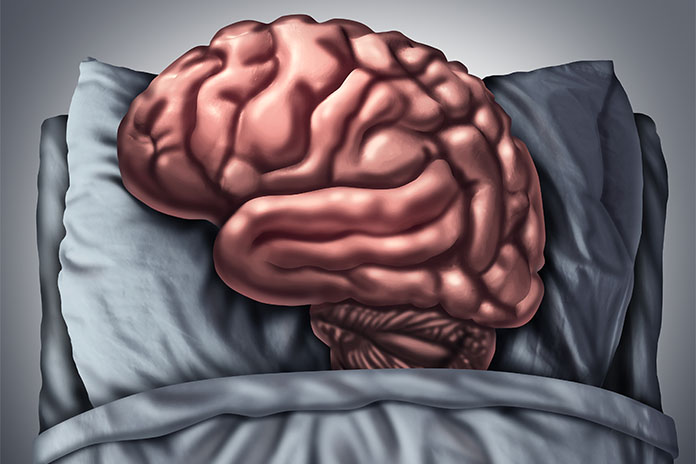
STRESS is the emotional and physical strain caused by our response to pressure in our world.
Experts believe that stress plays a role in many psychological and physiological ailments such as depression, anxiety, high blood pressure, heart disease, weight gain, alcoholism, reduced concentration, fatigue, irritability, narrowed focus and ulcers.
Stress activates our sympathetic nervous system, causing blood pressure, heart rate and breathing to increase. Muscles receive more blood, our attention narrows and feelings of anger and fear increase.
This is the fight or flight response and it is everywhere in our workplaces causing a significant amount of ill health, lost productivity and even death.
Of course, stress is not always negative and for most of us it is present every day. In fact, stress can be positive and helpful in endeavours like public speaking and meeting deadlines. It can motivate us, providing an extra surge of energy to explore new horizons and face challenges.
What Can Be Done?
It is our ability to deal with stress that determines its effect on our work, our home lives and our physical, emotional and mental well-being.
Given that most governments spend more than 95% of healthcare budgets on the treatment of ill health, we need to take responsibility for our own preventative health and well-being.
Luckily, there is much that we can do and over the years I have worked with many people who have implemented practical strategies to become creative, innovative and successful and dramatically improve their lives.
The list of 11 after this…

1. Get Physical
Exercise reduces your blood pressure, feelings of depression, stress, tiredness and anxiety. It also promotes your psychological well-being, enhances your energy and helps you sleep better.
Many of us have experienced the sense of well-being from exercising and from the release of endorphins. When you exercise, you are building up your reserves of hormones that help you to deal better with stress in the future. The fact that you are also doing something good for yourself gives you a sense of mastery and control and gives you a mental break from the things that are causing you stress.
Older people who exercise build up their brain tissue and minimise age-related brain tissue losses. All this is important because your brain is less than 3% of your body’s weight yet uses 30% of your body’s oxygen.
So join a gym, take up cycling, go for a swim or just walk as much as possible.
2. Get 40 Winks…At Least
Sleep is important to regenerate and refresh our learning ability, our memory and our emotions. It helps to repair our nervous and immune systems and enhance our physical capacity.
A University of California study found that the frontal lobe, which is involved in memory, co-ordination, planning, impulse control and problem solving, does not function well from lack of sleep.
To help you sleep better, establish a regular time for bed, don’t exercise just before bed, keep your bedroom for sleep and not for work, ensure that your bedroom is cool, well ventilated, quiet and dark, avoid caffeine and other stimulants, and don’t eat after 9pm.
See your doctor if you are having trouble sleeping.
3. Detox Your Mind
We should strive to detox our minds to help combat stress and anxious feelings.
Tips for doing this include limiting your TV viewing, leaving your mobile at home when you are out with friends, only checking your e-mail three times a day, getting out of the city to be free of billboards, traffic jams and noise pollution and turning off all appliances to listen to the silence.
Unplugging your computer and giving your eyes a rest will also broaden your horizons and open your mind.
4. Get A Massage
One of the best stress busters is to have regular massages. It is amazing that we regularly service our cars but not our bodies.
Massage releases endorphins which are the body’s natural painkillers and other beneficial hormones like oxytocin — feel-good hormones that help you relax.
5. Beware Of Isolation
Research shows that just patting a pet decreases your blood pressure and slows down your respiration (even if cleaning up after it or dealing with damaged furniture sends it in the other direction). This will also help in terms of social interaction and helping you to feel less isolated. You could also join a choir, learn to dance or enrol in a course.
6. Try Something New
Chris Barez-Brown who invented the concept called “Change your State” guarantees that if you do two new things each day, for five days, you will change your headspace and ultimately your life.
He says this enhances your creativity and leaves you “feeling more energised than a week’s holiday”. What will you try — walking a different way home, buying and reading different books, visiting a different part of your neighbourhood, looking at strange art or perhaps eating unfamiliar food?
7. Eat Healthy
It seems obvious but healthy eating is essential for combating stress and enhancing your well-being and performance at work. How many people drink at least two litres of water each day, eat fresh foods, especially vegetables, eliminate takeaway meals or have reduced their coffee, alcohol and sugar intake?
Try brewing your own Apple Tonic.
8. Learn To Breathe
If you are like most people, you don’t breathe effectively. Stress floods our systems with hormones like epinephrine and norepinephrine, which create shallow thoracic breathing that’s more suitable for the flight-or-fight response. Lengthening your breathing lets you oxygenate your blood more effectively and release more carbon dioxide and dead air from your lungs’ lower lobes.
Simply stopping during the day and taking some deep breaths creates space for expansive thoughts to be cultivated.
9. Monotask
Multitasking results in deteriorated performance because the executive part of the brain, the neocortex, becomes exhausted from having to pull forward vast amounts of new information each time you commence a different task. Doing one task at a time is much better for performance and stress reduction with some experts believing that interruptions can increase the time to finish the primary task by 25%.
This being the case, we should create rituals to reduce distractions, like dedicating a space for complex thinking and sticking to allocated times to check e-mails or respond to messages.
10. Make your workplace beautiful
Do not underestimate the need to create a nourishing environment at work. A study with baby rats showed that when they were placed in a sensory deprived environment, they suffered stunted brain development while also becoming aggressive and violent. Sensory rich rodents on the other hand developed larger, better-connected brains, learnt complex mazes quickly and played happily together.
Ideas for improving your workplace include hanging your favourite paintings, bringing fresh flowers and replacing fluorescent lights with full spectrum bulbs. Not surprisingly, results of college students in the USA improved by 12% when natural light was introduced into classrooms.
11. Find calm
To significantly enhance your workplace performance, try meditation, an experiential technique which involves focusing the mind in a way that helps you relax, contemplate, derive insight, gain awareness and enhance your mental, physical and emotional well-being.
Research on the effects of meditation has shown that prolonged practise can reduce fear and anxiety, lessen depression and anger, improve sleep patterns and memory, and enhance your concentration and mental clarity, which results in more energy and output.
Meditation is also a great way to steady yourself when you are in situations that normally make you anxious or panic, like before a difficult discussion or before an important presentation.






















